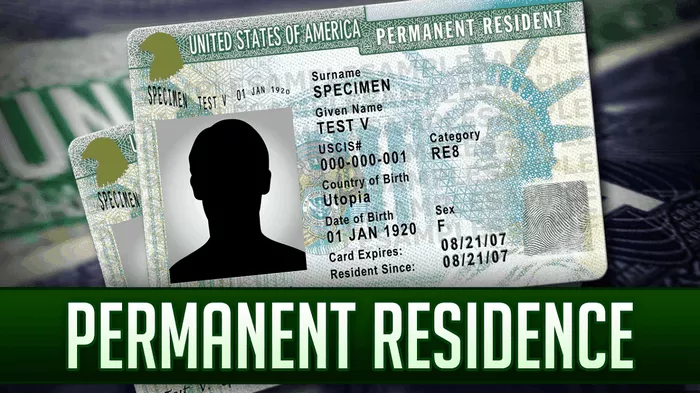In the landscape of immigration, the concept of conditional permanent residency stands as a pivotal point for many individuals seeking to establish roots in a new country. It is a status that comes with its own set of rights, responsibilities, and implications, often shaping the trajectory of immigrants’ lives and their integration into the fabric of their adopted nation. This article aims to shed light on what conditional permanent residency entails, its significance, and the factors surrounding it.
Defining Conditional Permanent Residency
Conditional permanent residency refers to a status granted to certain immigrants upon their entry or adjustment of status in a new country, typically through a spousal or investment-based visa program. Unlike regular permanent residency, which offers indefinite residency rights, conditional permanent residency comes with a time-limited aspect, usually lasting for a period of two years.
The conditionality aspect is usually tied to specific requirements that the immigrant must fulfill within the designated timeframe to maintain their permanent residency status beyond the initial two-year period. These requirements often revolve around maintaining the legitimacy of the underlying relationship or investment that served as the basis for obtaining conditional permanent residency.
Types of Conditional Permanent Residency
Conditional permanent residency can take various forms depending on the immigration pathway through which it is obtained. Two common types include:
1. Marriage-Based Conditional Permanent Residency: In many countries, conditional permanent residency is granted to individuals who marry a citizen or lawful permanent resident. This serves as a mechanism to prevent marriage fraud, ensuring that the marriage is genuine and not solely for the purpose of obtaining immigration benefits. Typically, the conditionality is lifted upon the couple demonstrating the authenticity of their relationship after two years of marriage.
2. Investment-Based Conditional Permanent Residency: Some countries offer conditional permanent residency to foreign investors who make substantial financial investments in the country’s economy. This could involve investing in businesses, real estate development projects, or government bonds. Similar to marriage-based conditional residency, the conditionality is lifted once the immigrant demonstrates compliance with the investment requirements.
Rights and Privileges of Conditional Permanent Residents
Despite its conditional nature, conditional permanent residency often affords immigrants certain rights and privileges similar to those of regular permanent residents. These may include:
1. Right to Work: Conditional permanent residents are typically authorized to work in the country where they hold residency status, allowing them to pursue employment opportunities and contribute to the local economy.
2. Access to Social Services: In many countries, conditional permanent residents have access to essential social services such as healthcare, education, and social welfare programs on par with regular permanent residents.
3. Travel Freedom: Conditional permanent residents may enjoy unrestricted travel within the country where they hold residency status, as well as the ability to travel abroad and re-enter without the need for additional visas or authorizations.
4. Pathway to Citizenship: Conditional permanent residency often serves as a stepping stone towards obtaining full citizenship in the host country. Fulfilling the conditions attached to conditional residency is typically a prerequisite for applying for permanent citizenship.
Responsibilities and Obligations
Alongside the rights and privileges, conditional permanent residents are also subject to certain responsibilities and obligations to maintain their status and fulfill the conditions attached to their residency. These may include:
1. Compliance with Immigration Laws: Conditional permanent residents must adhere to the immigration laws and regulations of the host country, including reporting any changes in marital status, address, or employment to the relevant authorities.
2. Fulfillment of Conditions: The primary responsibility of conditional permanent residents is to fulfill the conditions attached to their residency status within the designated timeframe. This may involve providing evidence of a bona fide marital relationship or meeting the investment requirements stipulated by the immigration authorities.
3. Maintaining Good Standing: Conditional permanent residents are expected to maintain good standing within the community and abide by the laws of the host country. Any involvement in criminal activities or conduct deemed detrimental to the public interest may jeopardize their residency status.
4. Documentation and Record-Keeping: It is essential for conditional permanent residents to keep accurate and up-to-date documentation relating to their residency status, including proof of compliance with the conditions imposed by the immigration authorities.
Implications of Conditional Permanent Residency
Conditional permanent residency can have significant implications for immigrants and their families, both in the short term and the long term. Some of these implications include:
1. Legal Vulnerability: Failure to fulfill the conditions attached to conditional permanent residency within the specified timeframe can result in the termination of residency status and potential deportation from the host country. This can lead to disruptions in employment, education, and family life.
2. Financial Investment: In the case of investment-based conditional residency programs, immigrants are required to make substantial financial investments in the host country’s economy. While this can yield long-term benefits, it also carries financial risks and obligations that must be carefully considered.
3. Emotional Stress: The uncertainty surrounding conditional permanent residency, particularly in marriage-based cases, can create emotional stress and strain on relationships as couples navigate the process of proving the legitimacy of their union to immigration authorities.
4. Pathway to Citizenship: Fulfilling the conditions of conditional permanent residency is often a prerequisite for obtaining full citizenship in the host country. This involves undergoing additional scrutiny and demonstrating a commitment to integration and assimilation into the local community.
Conclusion
Conditional permanent residency occupies a unique space within the realm of immigration, offering a pathway for individuals to establish roots in a new country while navigating specific conditions and requirements imposed by immigration authorities. Understanding the rights, responsibilities, and implications associated with conditional permanent residency is crucial for immigrants seeking to build a secure future for themselves and their families in their adopted homeland. By adhering to the conditions imposed and fulfilling their obligations, conditional permanent residents can embark on a journey towards stability, integration, and ultimately, full citizenship in their new home.


